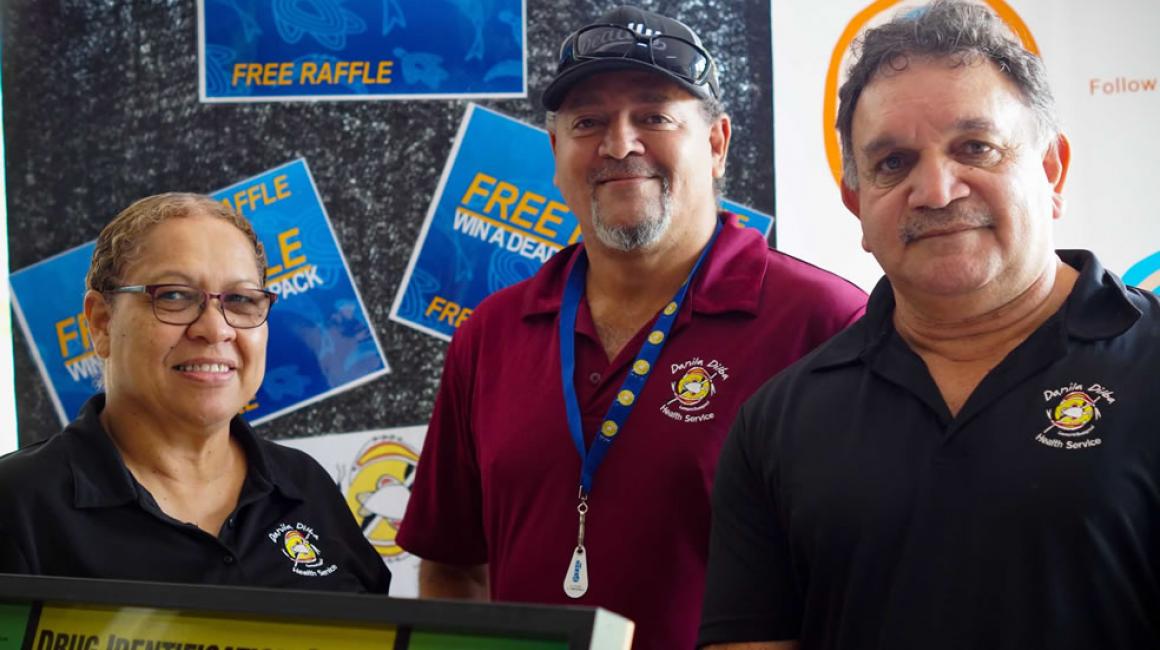
About us

Danila Dilba Health Service is an Aboriginal community-controlled organisation providing culturally-appropriate, comprehensive primary health care and community services to Biluru (Aboriginal and Torres Strait Islander) people in the Yilli Rreung (greater Darwin) region of the Northern Territory.
Our Vision
A society in which the health, wellbeing and quality of life of Aboriginal and Torres Strait Islander peoples is equal to that of non-Indigenous Australians.
Our Mission
To improve the physical, mental, spiritual, cultural and social wellbeing of the Biluru community of the Yilli Rreung Region through innovative comprehensive primary health care programs, community services and advocacy that are based on the principles of equity, access, empowerment, community self-determination and collaboration.
Our Core Values
The core values of Danila Dilba Health Service underpin our activities:
- provision of and advocacy for services that are equitable, accessible, professional, high quality and responsive to local needs
- working with our community to ensure a culturally appropriate environment that promotes safety, trust and respect
- supporting a workplace culture based on honesty, integrity, fairness, transparency and accountability.
Our Name and Logo
The name Danila Dilba Biluru Butji Binnilutlum was given by the Larrakia people, who are the traditional owners of Darwin and Palmerston. In the Larrakia language Danila Dilba means dilly bag used to collect bush medicines and Biluru Butji Binnilutlum means blackfella (Aboriginal people) getting better from sickness. Biluru is a Larrakia word that collectively describes Aboriginal people who are living in or visiting the Yilli Rreung Region.
Danila Dilba Today
DDHS is Darwin’s only Aboriginal community-controlled health service, with seven clinics in the region catering to the Aboriginal and Torres Strait Islander population. Healthcare services provided by DDHS are focused on acute care, immunisation, chronic disease management, women’s health, men’s health, child and maternal health, sexual health and social emotional wellbeing. DDHS also provides a range of community programs in areas including health promotion, mental health/social and emotional wellbeing, and alcohol, tobacco and other drugs. A recent independent study by Deloitte looking at three focus areas showed that each dollar invested in DDHS provides $4.18 of benefits to society. Currently, DDHS is able to deliver these improved health outcomes to almost 80% of the Greater Darwin Aboriginal and Torres Strait Islander population.